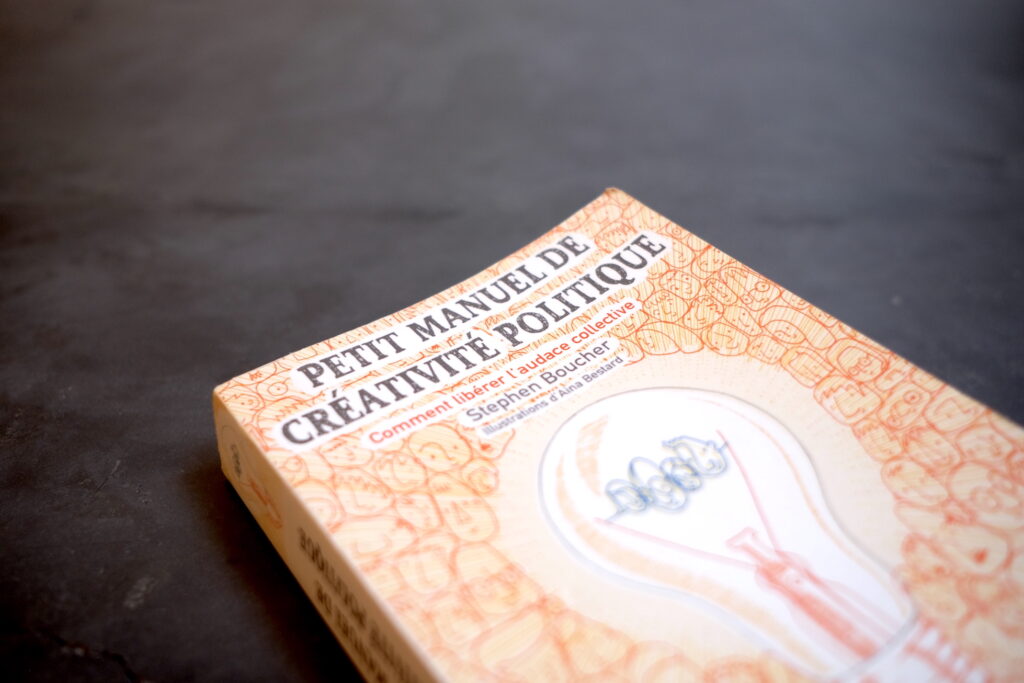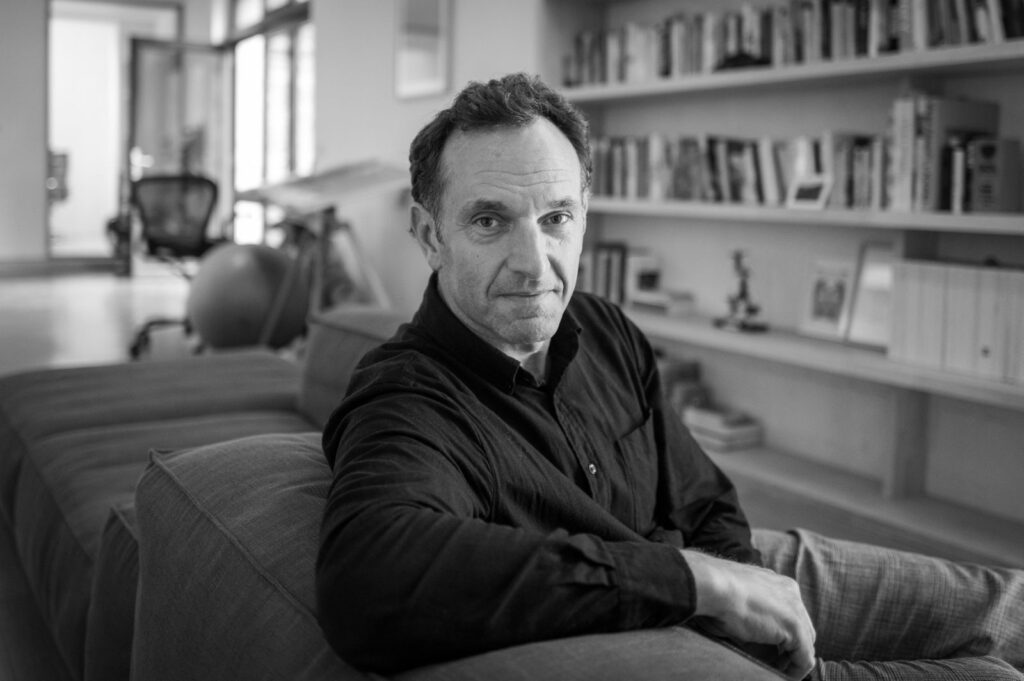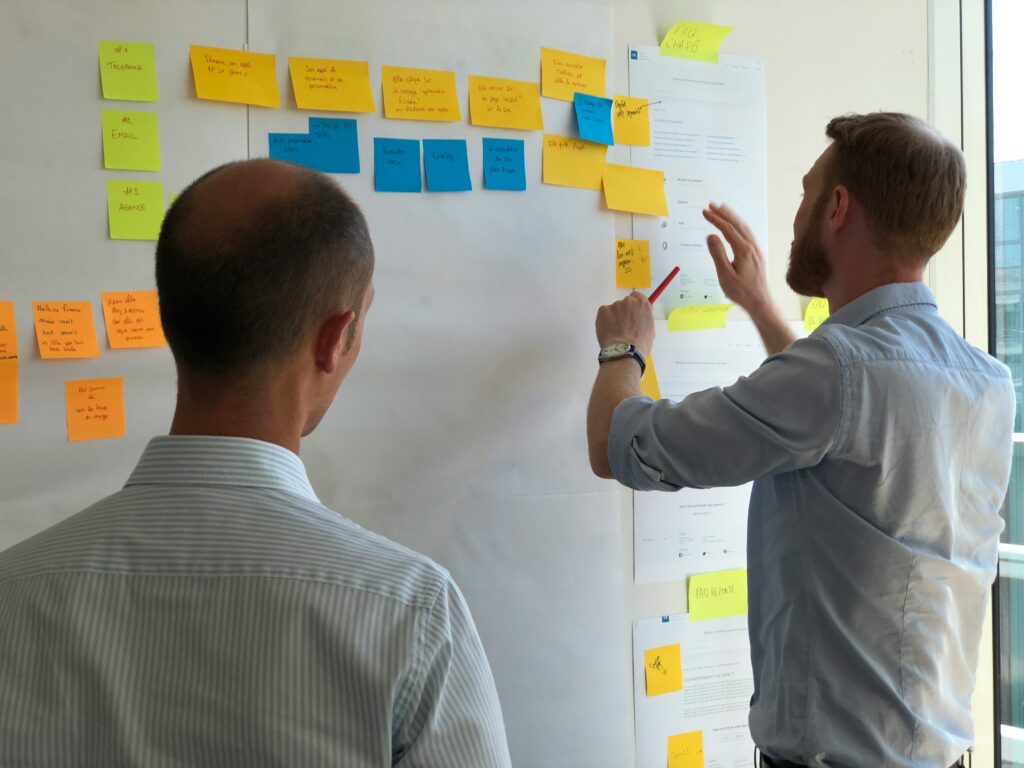Stephen Boucher is the author of the “Petit manuel de créativité politique – Comment libérer l’audace collective” (The Handbook of Political Creativity – How to Unleash Collective Audacity, published by Le Félin, Paris: 2017), a pioneering exploration of an unlikely alliance between creativity and public affairs.
Creativity has conquered all areas, helping bring new, more effective and efficient solutions to the corporate sector, the design industry, science and many other fields. Only one area appears to resist the transformative power of creativity: politics. Yet politicians are the first to stress the need for “radical change”, “new ideas” and “innovation solutions”. So how can creativity help solve our problems faster, better and with less?
23 case studies, over 45 interviews around the world
This is the question at the heart of the Petit manuel de créativité politique – Comment libérer l’audace collective. In this “manual”, Stephen Boucher offers a concrete method to trigger a creative revolution in the public sphere, based on numerous case studies from Europe and abroad.
In its introduction, Stephen Boucher relates the case of the city of Athens, which after 2008 faced considerable difficulties, not least massive immigration and huge financial problems. Civil society has picked things up where the city couldn’t act, refurbishing schools to house refugees, providing classes, organising citizens against vandalism, renovating open-air markets… Some of these initiatives were in principle not permitted by law, though providing solutions sorely needed on the ground. Rather than try to control this movement of spontaneous self-organisation, the administration of Athens has adopted a new attitude. It created synAthina, an online platform which allows members of the community to engage in problem-solving and reform. Individual citizens and groups can volunteer activities, as well as ideas on how to improve their city. Citizens who submit ideas are then connected to the relevant government representatives, non-governmental organisations, and private businesses that can support their efforts. If outdated regulations are needlessly prohibiting the advancement of good ideas, the synAthina project team works with partners in City Hall to update those regulations, policies, or procedures.
With this approach, Athens has changed its role from one of central organiser, to one of facilitator of decentralised initiatives. synAthina won the 2014 Mayor’s Challenge, organised by Bloomberg Philanthropies. It is an example of a wave of new approaches to public policy and public management that put co-creation with relevant stakeholders at their heart and that reinvent the role of public authorities, enabling them to harness the creativity of people wherever it lies to solve collective problems faster.
Liberté, égalité, fraternité… créativité
Citizens are increasingly frustrated with the perceived inefficiency of government. Some are looking for radical new approaches, from artificial intelligence running government affairs to replacing elected officials with randomly selected citizens. Others have simply concluded that democracy is not the most efficient political regime, and that an authoritarian one would be preferable. Real change is needed, and fast.
When will we see real change?
For decades, policy makers in France and elsewhere have been promising radical change. Candidates in the French presidential elections since 1954 have recycled similar slogans. They all promise “new solutions” and “turning the page”. This contrasts sharply with the electorate’s expectations. 84% of voters in France before the 2016 presidential election stated that they felt a “powerful need for change”. “Creativity” and “innovation” were cited among the most valued concepts, at the same level as “Family”, “Freedom” and “Effort”.
The issue is that “change is no longer what it used to be”: the problems we face collectively are more complex, arise faster, are accelerated by technological change, they are more interlinked globally, they now even threaten the very survival of mankind, and we face increasing resource constraints. The speed and magnitude of such change creates a level of anxiety in citizens that can be harnessed to challenge traditional ways of conducting affairs. Studies in psychology show that at this point in time, we have reached the conditions that can help overcome resistance to change, if we decide to see such challenges as an opportunity worth harnessing. As Woody Allen once said, “confidence is what you have before you understand the problem”. We now understand the problem and we can consider new approaches to public administration and politics. Meanwhile, citizens have become accustomed to being involved in decision-making in all walks of life. They reject top-down only approaches and call for new forms of policy making.
This is what the handbook seeks to address by providing inspiration through case studies, as well as practical methods built on experience.
Services provided
- Documenting inspirational governance practices and public policies
- Research, writing, public speaking, moderating events
- Training and capacity building in Collective Intelligence, Creativity and Collaborative Leadership
- Developing bold democratic innovations
Inspiration that has been widely read
With this handbook, Stephen Boucher proved that “political creativity” is not an oxymoron. The book went rapidly out of print. It inspired research projects at the University of Paris in the team of Todd Lubbart and Florent Vinchon.
In the media
- « La proposition de M. Macron de consulter les citoyens sur l’Europe est nécessaire et réalisable » (Le Monde)
- “Et si on osait le politiquement créatif ?” (consoGlobe)





